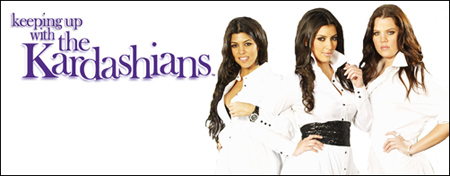
There’s a particular school of cultural critic — you know the kind — who are forever seeking signs that the world is going to hell in a bucket. One phenomenon that they decry with tiresome regularity is that of celebrity-in-itself — that is, the idea of someone who is “famous for being famous.” The assumption, when the phrase is used, is that such a state of fame is a new anomaly in the order of things, and so a symptom of our civilizational decline.
Reader, ’tain’t so. Literary biographies and cultural encyclopedias are full of figures of questionable accomplishments whose names we still sort of remember: Mrs. Astor, Diamond Jim Brady, Lilly Langtry, Beau Brummel. They didn’t call them “celebutantes“ then; instead, they come down to us with such non-professional titles as famed beauty, noted dandy, or celebrated wit. Some of them made a living as writers or performers in between stints as professional dinner guests, but then, just as now, many came from inherited wealth. They were famous in their day for their parties, their clothes, their lovers. Even figures of genuine ability aren’t immune to this sort of celebrity-in-itself. Lord Byron, for instance, was a hell of a poet — but not even grad students actually read him any more. He belongs to posterity as a lifestyle, as a mood, as an adjective.
You can’t control how history will remember you — only whether it will or not. The wealthy layabouts of centuries past might court fame by patronage of the arts, or by hosting literary salons; they shone by surrounding themselves with men of genius and reflecting their brilliance. The major innovation of today’s celebutantes lies in cutting out the middleman. Instead of surrounding themselves with talent, they’ve simply surrounded themselves with cameras and taken their case directly to the viewing public.

So it is with the kin of the late multimillionaire scumbag businessman and lawyer Robert Kardashian. How much of a scumbag was Robert Kardashian? Enough to sign on for O.J. Simpson’s “dream team“ of defense attorneys — even though his own then-wife Kris had been a close friend of Nicole Brown Simpson. Robert and Kris subsequently divorced, and Robert died a few years later, leaving his quasi-widow and their brood of kids (Kim, Khloe, Kourtney, and a couple of others with names slightly less ridiculous) to fend for themselves, shielded from the vicissitudes of the world only by their bottomless sense of entitlement, their trust funds, and the loving (if befuddled) presence of stepfather-figure Bruce Jenner. (Yeah, the guy from the Wheaties box, once the world’s greatest all-around athlete, playing straightman to a house full of drama queens. No wonder he looks so exhausted all the time.) In their E! Network reality series Keeping Up with the Kardashians (Sundays, 10 PM), we see them cope as anyone would, by endless parties and shopping among their moneyed peers, and by abusive drinking. The girls intermittently play at being members of the productive class, taking occasionally shifts at the till of a vanity boutique set up for just that purpose; I thought of Marie Antoinette‘s little dairy at Rambouillet. Their real full-time job, though, is to read their own press and then complain about it.
There’s something sick-making about watching women in their twenties, with all their lives ahead of them, with nothing more important on their plates than scanning the newspapers looking for their own names. But the gorge really rises at the sheer ugliness of the show. The sisters and their entourage wear fashions so transcendently hideous that one hopes they are woven through with threads of pure iridium, so as to justify their doubtless-astronomical expense. The women are all moderately pretty, in an unformed sort of way; their features lack character — and the lives they live seemed designed to prevent them from acquiring any. All their actions seem to take place in a consequence-free bubble of wealth and privilege.
In the season 3 premiere, sassy ragamuffin Khloe has been popped for DUI and, having blown off her court-mandated traffic school, is sentenced to jail time. (Coincidentally, mom Kris begins at about this time to suffer intense pining for her late ex-husband — perhaps out of genuine grief and remorse, perhaps from knowledge that the old shyster could surely have gotten Khloe off.) Khloe petulantly reports to County to begin her 30-day sentence, but is released after just three hours due to “overcrowding.”
So the rich really are different from me and thee; this moment rubs our noses in it, leaving us uncomfortably aware that what we are seeing would be inconceivable without the complicity of an entire community. There’s an entire industry of publicists and agents whose entire function is to cover for these people, to make excuses for their behavior; they are abetted in this by segments of other industries — hospitality, health care, retail, even law enforcement — who happily maintain the double standard that allows the Kardashians and their ilk to continue drifting through their lives without ever wising up. The single exception is the press, about whom the Kardashians whine incessantly; the paparazzi are indeed almost cartoonishly aggressive and obnoxious — “No Happy Hour where you’re going, Khloe,” gibes one — but in this whole sorry picture they’re the only ones actually doing their jobs.
This is nothing we haven’t seen a hundred times, and a slight air of exhaustion hangs over the whole enterprise from the “wacky” faux-1950s graphic branding on down. Still, it’s expertly packaged by the people who invented the genre — Bunim/ Murray Productions, whose groundbreaking MTV series The Real World invented reality programming and charted its development from sociological experiment to self-parody to something now best viewed as pitch-black social comedy; loudmouthed-yet-inarticulate narcissists talking past each other, regaling the diary cameras with assessments of their housemates’ character flaws while remaining blind to their own, self-obsessed without a moment of self-awareness.

The narrative structure, as with all reality TV, is spasmodic. The throughline lurches from one mini-disaster to the next, long flat stretches of bone idleness alternating with flurries of crisis mode. Older sister Kim was the breakout star of the first few seasons, but absent any new sex-tape scandal she has receded to a supporting role. Young Khloe has become our de facto protagonist, because she’s the one who is most actively fucking up her own life right now. The show desperately tries to give her some depth; in one spectacularly ill-judged monologue, Kim makes the case that no one can know how scared Khloe really is of jail, because Khloe is “so tough” — but she will never be mistaken for a knife-fighting gutter punk. She’s destructive, but as helpless and cuddly as a basket of drunk puppies, adrift and indulged, never growing, so devoid of inner resources that the thought of a night at home sends her into horrors of boredom. (There are plenty of cards in Khloe Kardashian’s purse, but I’m guessing that a library card is not among them.)
It’s entertaining, in a way — the sheer folly on display, the hilariously tin-eared speeches, the fumbling attempts at empathy — but it makes me hate myself. Not because I envy the Kardashians and their fabulous lifestyle, but because the show appeals directly to my monkey-brain. A steady diet of this stuff makes us a nation of Nelson Muntzes, programmed to emit a braying HAH-ha! at someone else’s humiliation. And that’s not someone I want to be. The most common rap against reality TV is that it encourages the impressionable to aspire only to fame, rather than achievement; but it’s far worse, I think, that it encourages the rest of us to be bullies. That’s the shame and the sin of a show like Keeping Up With the Kardashians; not that it cheapens the idea of celebrity — which is a notion that has been in constant flux since it was first invented — but that it coarsens the role of the audience.

![Reblog this post [with Zemanta]](http://img.zemanta.com/reblog_e.png?x-id=30c92d7e-51c0-448d-8543-6d97edab8499)



Comments